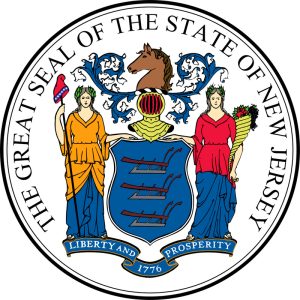On July 3, 2023, Governor Phil Murphy signed into law A.B. 5323, enacting important revisions to New Jersey’s Corporation Business Tax (CBT)[1] including expanding the definition of what constitutes a “unitary business.” The expanded definition now includes affiliated entities that may not have previously met the requirements for combined group membership for CBT purposes. 
Effective for tax years ending on or after July 31, 2019, New Jersey law adopted mandatory combined reporting.[2] A combined return is required for a group of business entities that are in a “unitary business.” [3] An entity that is “unitary” with a taxpayer must be included in a taxpayer’s water’s edge combined return (default) or world-wide group combined return (elected).[4]
Prior to the law change, for tax periods before July 31, 2023, New Jersey defined a “unitary business” as a “single business entity or a group of business entities under common ownership that are sufficiently interdependent, integrated, and interrelated through their activities so as to provide a synergy and mutual benefit that produces a sharing or exchange of value among them and a significant flow of value among the separate parts.”[5] However, for tax periods on or after July 31, 2023, the state revised the definition of “unitary business” to require combination of all affiliate entities that are “sufficiently interdependent, integrated, or interrelated through their activities.”[6] As a result of expanding the “unitary business” definition from the conjunctive “and” to a disjunctive “or,” the state has expanded the composition of a unitary business group. Accordingly, certain entities’ revenue that were not subject to CBT under the previous definition may now be subject to tax under the new definition.
Despite the change to the “unitary business” statutory definition, the law still expressly acknowledges that the definition’s scope is nonetheless limited by the U.S. Constitution. U.S. Supreme Court precedent on the issue defines a unitary business by significant flows of value evidenced by factors such as functional integration, centralization of management, and economies of scale.[7] It remains to be seen how the Division will apply the broader definition in practice.
[1] P.L. 2023, c.96. See A. 5323, 220th Leg., Reg. Sess. (N.J. 2023). The bill is summarized in N.J. Technical Bulletin TB-107 (July 11, 2023).
[2] N.J. Rev. Stat. §§ 54:10A-4(k), 54:10A-4.8, 54:10A-4.10(g); N.J. Admin. Code §§ 18:7-5.1(c), 18:7-5.11, 18:7-21.4, 18:7-21.15(a); New Jersey Technical Bulletin No. TB-89(R) (Rev. Sept. 5, 2023); New Jersey Technical Bulletin No. TB-109 (Rev. Sept. 5, 2023).
[3] N.J. Rev. Stat. § 54:10A-4.10(g); N.J. Admin. Code §§ 18:7-21.4, 18:7-21.15(a); New Jersey Technical Bulletin No. TB-89(R) (Rev. Sept. 5, 2023).
[4] N.J. Admin. Code § 18:7-21.15(a).
[5] N.J. Rev. Stat. § 54:10A-4(gg) (emphasis added) (eff. until July 3, 2023); New Jersey Technical Bulletin No. TB-93(R) (Rev. Aug. 14, 2023).
[6] N.J. Rev. Stat. § 54:10A-4(gg) (emphasis added) (eff. July 3, 2023); New Jersey Technical Bulletin No. TB-93(R) (Rev. Aug. 14, 2023).
[7] See Mobil Oil Corp. v. Vermont, 445 U.S. 425 (1980).
 SeeSALT Blog
SeeSALT Blog

